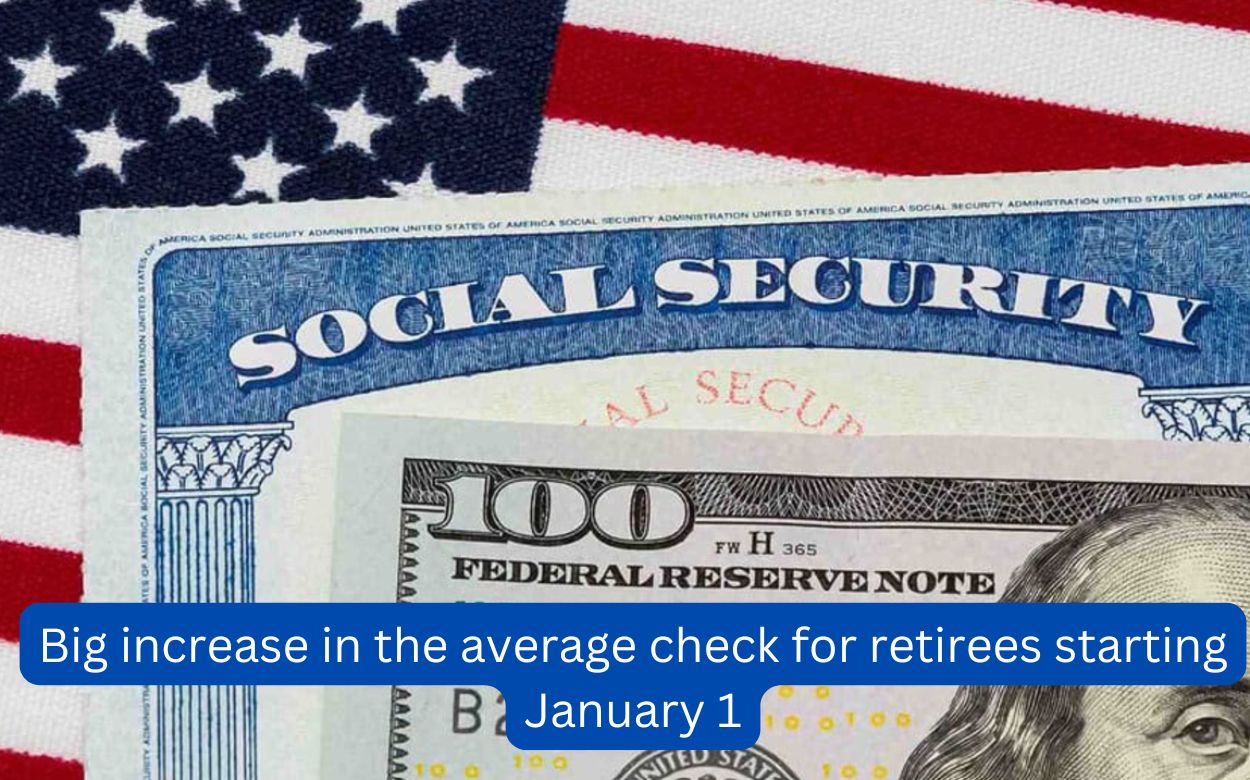Big Boost for Retirees: Average Checks Set to Skyrocket Starting January 1
Most seniors know their Social Security benefits include an annual cost-of-living adjustment (COLA) each year. COLAs are designed to assist them in keeping up with inflation and maintaining purchasing power, but they are not intended to enhance benefits.

This is one of the primary reasons experts advise recipients not to rely only on benefits to meet their retirement obligations. Benefits were never supposed to replace a salary but rather to cover approximately 40% of expenses. Despite this, many retirees rely on their Social Security checks to make ends meet, and with this year’s 2.5% increase, many are unsure how they will make ends meet in the new year.
The effects of a low COLA on retirees’ Social Security benefits:
For individuals who rely on some type of Social Security, the rise helps with bills like Medicare. Looking at the average monthly Social Security income in 2024 and adding the 2.5% COLA, we get from $1,927 to $1,976 in 2025. This is only a $49 increase, combined with the previously announced Medicare Part B increase, which leaves beneficiaries with only $39 extra per month to cover expenses.
This does not imply that every beneficiary will receive an equal rise; those with more outstanding checks will receive more, while those with more minor benefits will receive less. Some seniors are not even eligible for Medicare. Therefore, this situation does not apply to them, as Social Security eligibility begins at age 62, and Medicare eligibility does not begin until age 65.
Regardless of the increase and the services you have signed up for the 2.5% increase will be insufficient for most people to cover the rise in expenses they experienced in 2024 when inflation surpassed the COLA in the first half of the year, let alone make up for some of the savings they used to cover the difference in their expected expenses.
How to compensate for a minor increase?
When you’re a regular worker, it’s easy to say, “Just get a higher salary or a different job that pays better, or just move,” but things might become more complicated as you age. The concepts remain the same, and while making some lifestyle changes can be difficult, the improved financial situation may be worth the sacrifice. Because benefits are based on your record rather than your address, moving to a less costly section of the country is the most effective approach to boost your disposable income with less effort. As a final resort, if you are fit enough, consider returning to work with part-time jobs that offer flexibility. It doesn’t have to be high-pressure work or even in your industry, but it would provide extra income and some contact with other people, which could help you avoid isolation.


Comments are closed, but trackbacks and pingbacks are open.